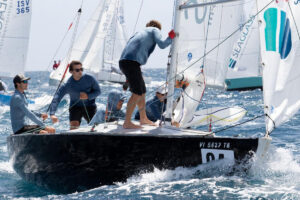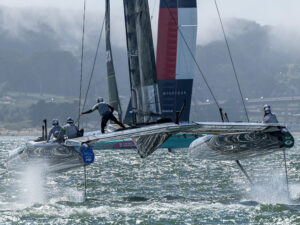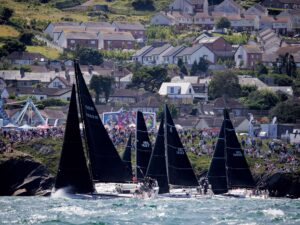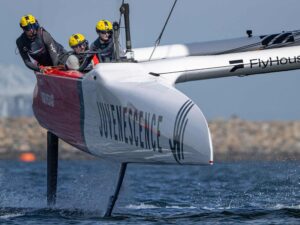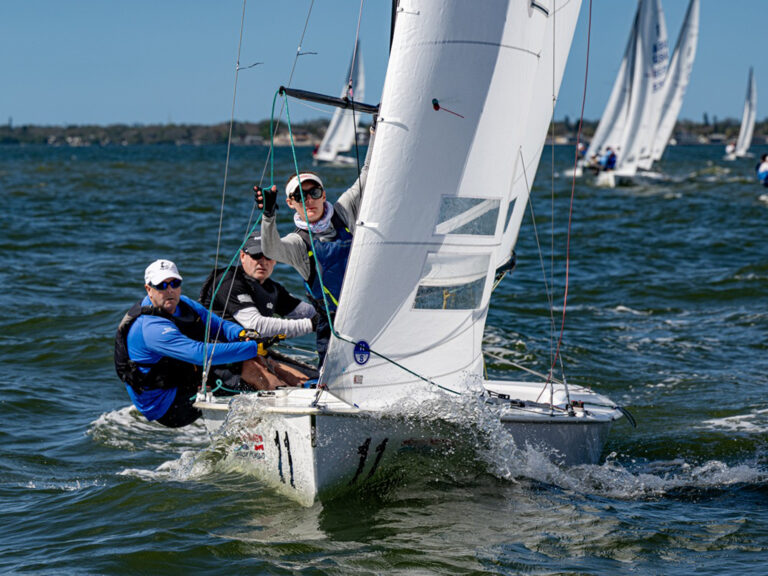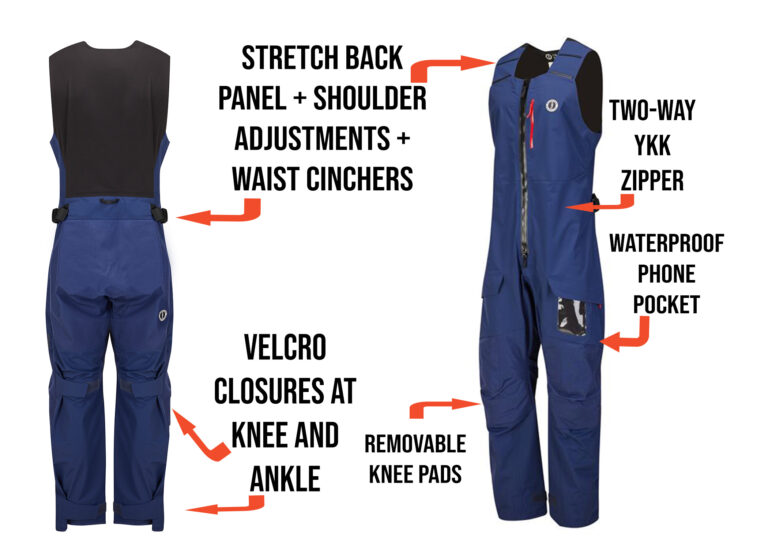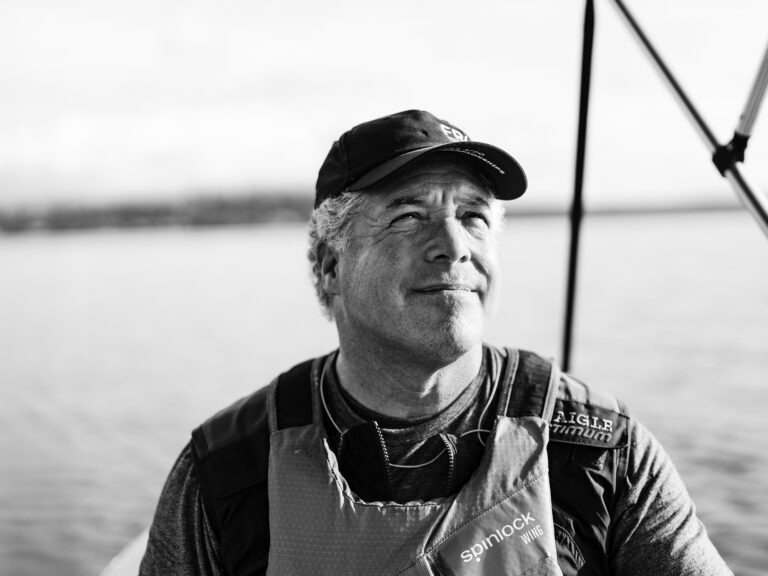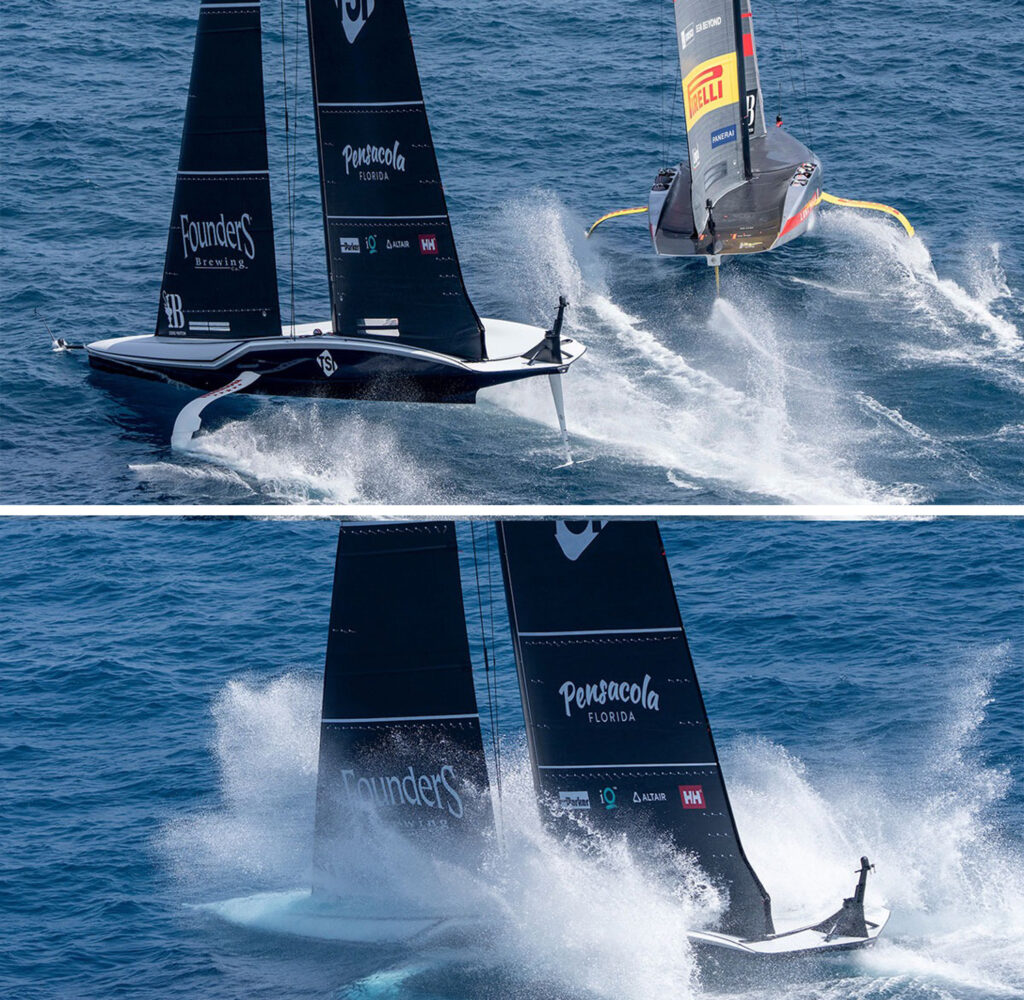
As America’s Cup teams explore the fringes and loopholes of the AC75 class rules and Protocol for some measurable advantage, they must do so by filing “enquiries” with America’s Cup officials, which then prompt approval or objections from other teams. Such enquiries often provide fascinating and entertaining reading, especially as those who file often muddy the question itself so as not to give away their true intentions.
With the respective AC75 hull platforms, sails, foils and big bits mostly finalized at the macro level, enquiries at this late stage of the regatta hint at grasps for fractions of a knot, or in the case of a new one from the New York YC’s American Magic, a better way to…err…um…save face.
Rule Enquiry, No. 244, was submitted by American Magic after the practice day of the Final Preliminary Regatta, during which the team suffered a pucker-of-a-pitchpole that buried the boat from the bow clear back to the cockpits, filling them with cool Mediterranean blue and doing a number on the delicate electronics inside the yacht. American Magic CEO Terry Hutchinson shrugged off the crash down as an “oopsie,” but the incident does hint at one particular problem with regard to Patriot’s extremely low freeboard and the location of the cockpit openings. Enquiry No. 224 further highlights the vulnerability of the helmsmen and the flight controllers, especially, which are forward and inboard on the deck—right in the firehose.
“We are looking at ways to protect our sailors’ face from hitting parts of the yacht or being hit by large amounts of water in case of nose dives and other decelerations,” American Magic states in its enquiry. “To do so, we have been prototyping face masks that protect the face, much like the helmet protects the head and goggles protect the eyes. An example of such a face mask can be seen in the pictures below.”
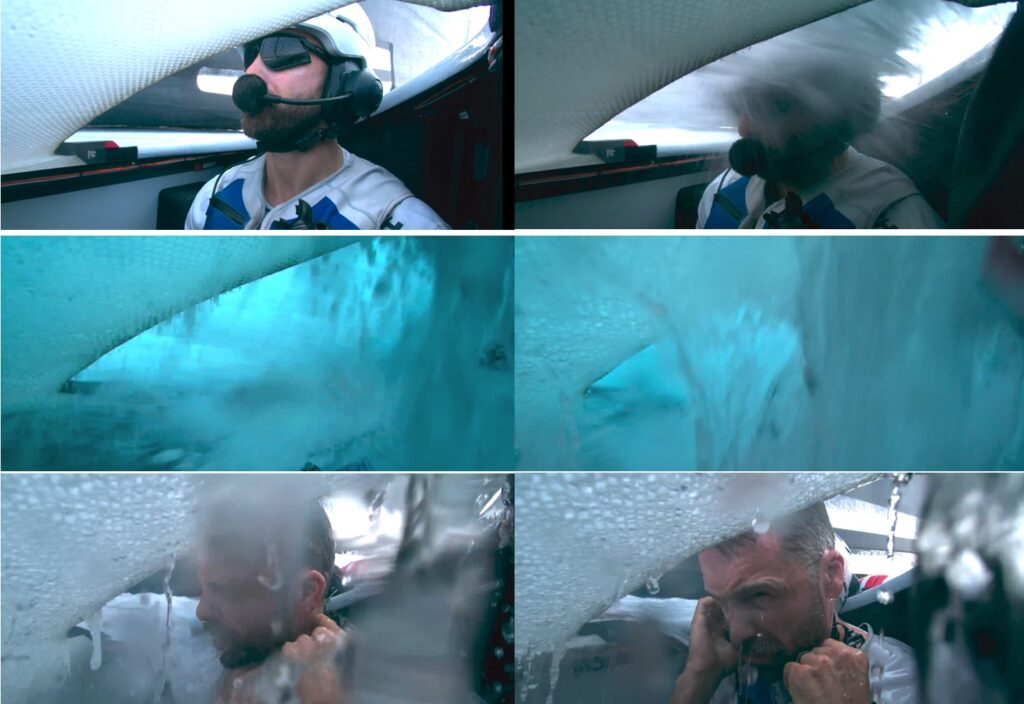
In their appeal, they argue that the goggles and helmets used by other teams provide some aerodynamic benefit, so like, no big deal, right?
While the Rules Committee seemed to be OK with American Magic’s prototype mask, anonymous responses from the other teams were lockstep in opposition: “There is no way to know how the final product might vary from this prototype or example, and whether it might contain additional features such as an integral eye shield rather than the separate pair of goggles this prototype seems designed to accommodate,” wrote one respondent.
“The author of the enquiry has acknowledged that the device is designed to provide hydrodynamic fairing by writing ‘protect our sailors’ face from […] being hit by large amounts of water.’ So, it is designed to provide aerodynamic fairing, in the sense of smoothing the shape of the crew’s face,” wrote another in the nay column, followed by, “We believe that other designs of face protection masks such as motocross, paintball, ice-hockey, lacrosse provide protection without providing aerodynamic fairing and that the design presented in the rule enquiry differs from them uniquely to provide fairing.”
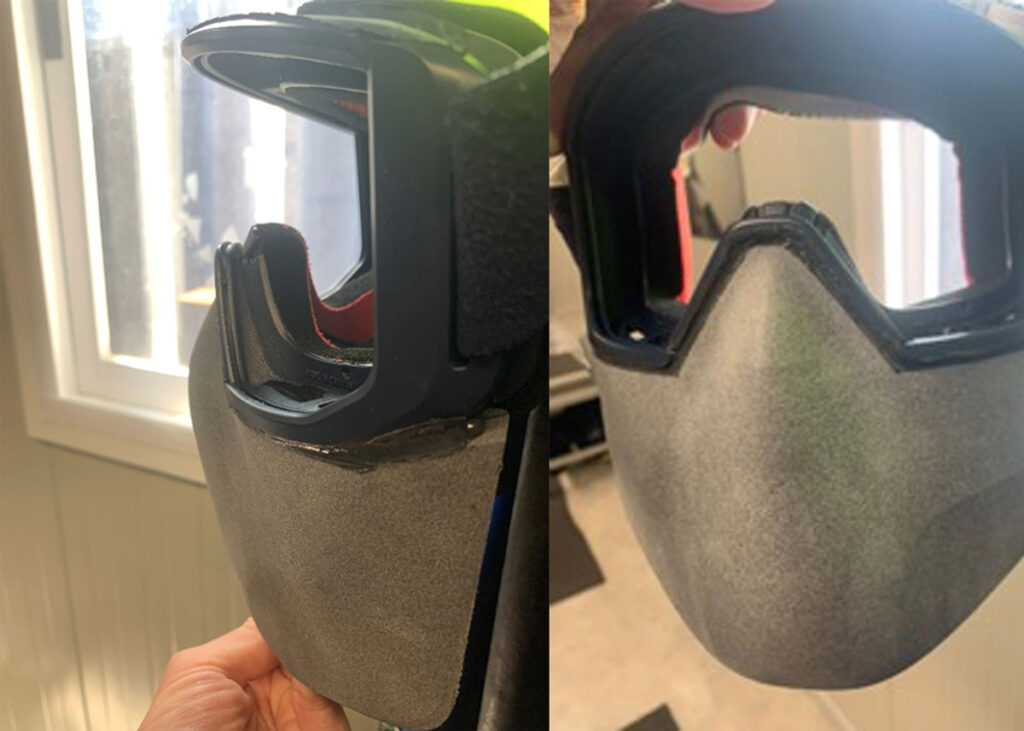
“We remain convinced that this is an unsafe development,” was another response, and finally this one: “We disagree with the [Rules Committee] draft interpretation, which may set a dangerous precedent when considering safety versus aerodynamic gain.”
“When we consider the helmets and goggles used by the competitors, all are commercially available components of which the competitors have selected the basic versions rather than those specifically engineered for aerodynamic efficiency,” one response stated with a hard no.
By our count, that’s five against one, with only the Rules Committee seemingly siding with American Magic, who perhaps put in the final word with: “We sustain that being able to divert the water from the nose and mouth is a key feature of the mask that will allow sailors to continue breathing unobstructed by said water in the event of a nose dive or rapid deceleration.”

